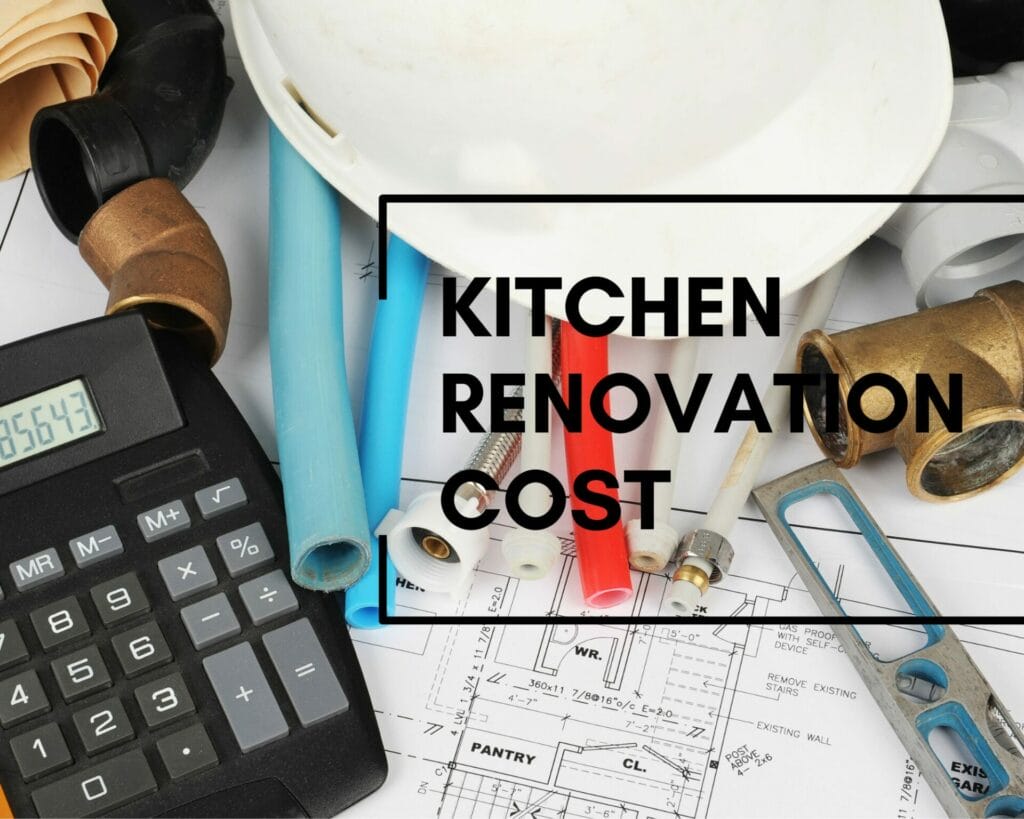License #12173

Ever wondered why understanding renovation costs is key to a successful kitchen makeover?
Well, let me tell you, diving into the nitty-gritty of expenses can save you from unexpected surprises down the road.
If you're all set to revamp your kitchen without a clear idea of what to expect financially, you might find yourself in over your head.
Before you roll up your sleeves and break ground on that dream kitchen project, it's essential to grasp the basics of renovation expenses, especially when it comes to installing sinks and faucets.
In this journey, we'll take a quick stroll through the kitchen renovation process, shedding light on why knowing installation costs upfront can make all the difference in your renovation.

Understanding the intricacies of kitchen renovation costs is pivotal before diving into your project. Let's unravel the layers, shall we?
Renovating your kitchen encompasses a spectrum of expenses beyond mere cosmetic upgrades.
From material costs to professional services, the financial spread is vast.
Consider this: the materials alone, including cabinetry, countertops, flooring, and appliances, can set you back thousands of dollars.
For instance, according to Forbes, the average cost of a kitchen remodel could reach up to $25,000, depending on factors like the size of the kitchen and the quality of materials used.
Crafting a comprehensive budget is the cornerstone of any successful kitchen renovation project.
Diligent research and obtaining quotes from various contractors and suppliers means you can gauge the market prices and plan your expenses accordingly.
Remember to include allowances for unexpected costs and contingencies to prevent budget overruns.
It is suggested that the average cost of installing or replacing a kitchen faucet falls within the range of $300 to $600, depending on the complexity of the installation and the type of faucet selected.
Now, let's zoom in on the installation costs, particularly for sinks and faucets.
Labor fees, the type of sink or faucet chosen, and any additional plumbing requirements significantly influence the final expenses.
According to other sources, the cost of installing a kitchen faucet can range from $150 to $300, while the installation of a sink might add another $200 to $500 to your budget.
Being aware of these specific costs upfront helps you better allocate your resources and prevent financial surprises along the way.
Now, let's take a closer look at what goes into determining the costs of installing sinks and faucets.
Understanding these factors can help you budget effectively and make informed decisions for your kitchen renovation project.
Labor costs are a significant component of sink and faucet installation expenses.
The complexity of the installation, the skill level of the plumber, and local labor rates all play a role in determining how much you'll pay for installation.
Keep in mind that more intricate installations, such as undermount sinks or touchless faucets, may require more time and expertise, thus driving up the labor costs.
The materials you choose for your sink and faucet can also impact the overall installation costs.
High-end materials like stainless steel or granite composite sinks tend to be more expensive upfront but may offer greater durability and longevity.
Similarly, faucets made from premium materials such as brass or stainless steel may command a higher price tag but can withstand the rigors of daily use.
Balancing quality with cost is essential when selecting materials to ensure you get the best value for your money.
Before finalizing your sink and faucet installation, it's essential to consider the array of additional features and accessories available to enhance your kitchen experience.
From practical enhancements to aesthetic upgrades, these add-ons can elevate the functionality and style of your kitchen.
However, it's important to weigh the benefits against the added expenses and prioritize according to your needs and preferences.
When it comes to budget allocation and cost management, it's crucial to strike a balance between your desires and financial constraints.
Start by setting a realistic budget based on your overall renovation goals and priorities.
Research different sink and faucet options to understand their costs and features before making any decisions.
Be prepared to make trade-offs and prioritize essential elements to stay within your budget without compromising on quality or functionality.
Now that we've elaborated on the various costs and factors influencing sink and faucet installation, it's time to equip you with effective strategies for budgeting and planning your kitchen renovation project.
Let's explore practical tips and insights to help you navigate the financial aspects with confidence.
Embarking on a renovation journey demands astute financial management. Here are some practical tips to help you steer your budget effectively:

When it comes to allocating your budget, prioritize expenses based on your needs and priorities.
Identify essential elements of your kitchen renovation, such as quality materials for countertops and cabinetry, and allocate a larger portion of your budget accordingly.
Be strategic in your spending by focusing on areas that will have the most significant impact on the functionality and aesthetics of your kitchen.
Negotiating costs with contractors and suppliers can also help you maximize value and stay within budget.
Obtain multiple quotes and leverage competitive pricing to secure the best deals without compromising on quality.
Don't be afraid to ask for discounts or explore alternative options to save money without sacrificing the quality of your renovation.
Thorough research and planning are key to a successful kitchen renovation.
Take the time to explore different design options, materials, and suppliers to ensure you make informed decisions that align with your budget and vision for your kitchen.
Collaborate with reliable professionals, such as contractors, designers, and plumbers, who can provide expert guidance and support throughout the renovation process.
Understanding renovation costs and effective budget management is essential for any successful kitchen renovation project.
From deciphering overall expenses to unraveling the specifics of installation costs, thorough research and planning play a pivotal role.
Setting realistic budgets, considering all expenses, and allocating contingency funds are all ways homeowners can navigate their renovation journey with confidence and foresight.
Prioritizing expenses, maximizing value, and leveraging negotiation strategies further contribute to achieving desired outcomes within budget constraints.
Moreover, thorough research and collaboration with reliable professionals ensure informed decisions and a smoother renovation process.
With these insights and tips, homeowners can embark on their kitchen renovation projects with assurance, knowing they are well-prepared for the financial aspects of the endeavor.
1275 Bayshore Rd
Villas, NJ
08251
(609) 374-6001
https://www.majewskiplumbing.com/

